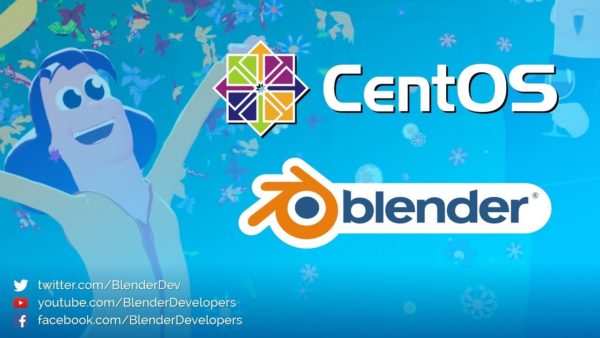
I’ve been trying to build Blender from source on CentOS for many years, but never had any luck making it work. There was always one package missing, or something else that needed to be configured. Depressed and resentful, I gave up and never got a chance to try Blender on CentOS.
Recently, the Blender Devs have started releasing a pre-compiled version of Blender for CentOS for download. This should work on RHEL and Fedora just as well. Huzzah!
With a fresh installation of CentOS looking at me from my old Samsung Q330 laptop, I thought I’d try it out. It works great! Here’s what I had to do to make it work, step by step.
Installation
The download section on Blender.org should automatically offer the correct version if you’re on a Linux system. If not, you can pick it from the list. It’s a b2z file, and all we need to do is to unZIP it with your favourite archiving utility. The download contains a single folder that needs to be extracted in its entirety to a safe place on your system. Anywhere in your home directory is good, I’ve made myself a folder called Applications (keeping in line with what macOS does).
In this folder we find a file called blender without an extension, already patched with execute permissions. Double-clicking it from your favourite desktop client should launch it. However, if it doesn’t seem to do anything (as it did on my system), you may need an additional package.
To investigate further, try launching Blender from the Terminal. You’ll see any text output, and with it you’ll notice any error messages that may pop up. I had a fresh CentOS installation with GNOME, and in my case the OpenGL driver was missing. The following mesa package took care of this:
yum install mesa-libGLU*
This brought in several necessary additions to my system, after which Blender launched successfully.
OpenGL Considerations
I’m using really old hardware, which means sadly I can’t run the latest version of Blender. Here’s a quick rundown of what’s required for which version:
- Blender 2.8+ requires OpenGL 3.3 or higher
- Blender 2.79 requires OpenGL 2.1 or higher
- Blender 2.76 and lower requires OpenGL 1.4
To find out which verison your system is running, you can use the glxinfo command:
glxinfo | grep "OpenGL version"
OpenGL version string: 2.1 Mesa 18.0.5
This tells me that Blender 2.8 and above won’t run on my system, but I can still play with Blender 2.79. Hope this helps you to Linux Blender Happiness!
